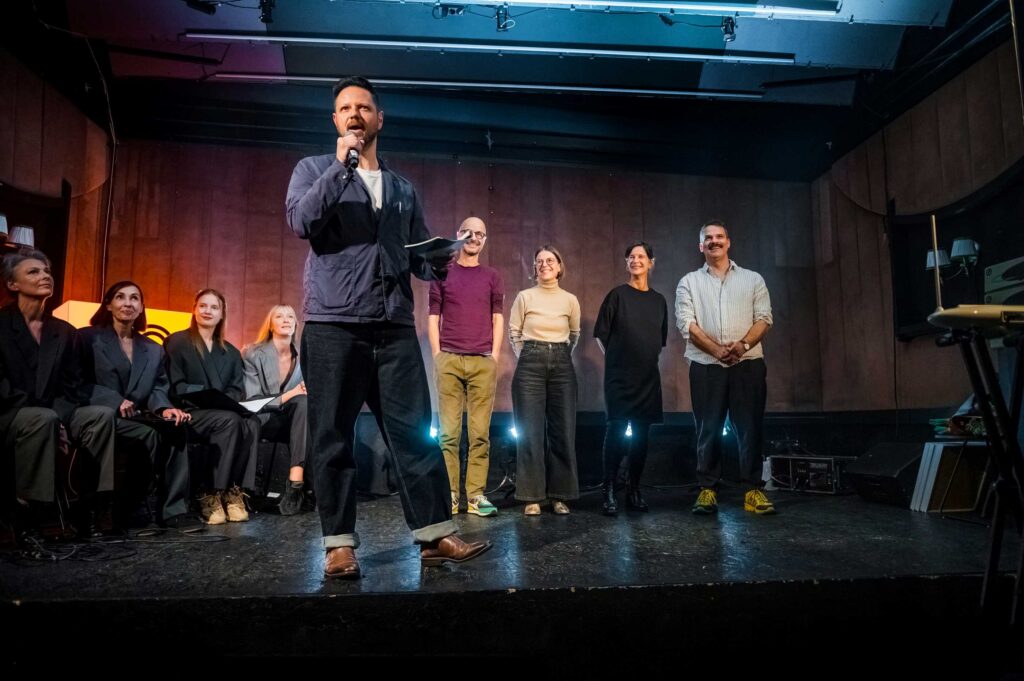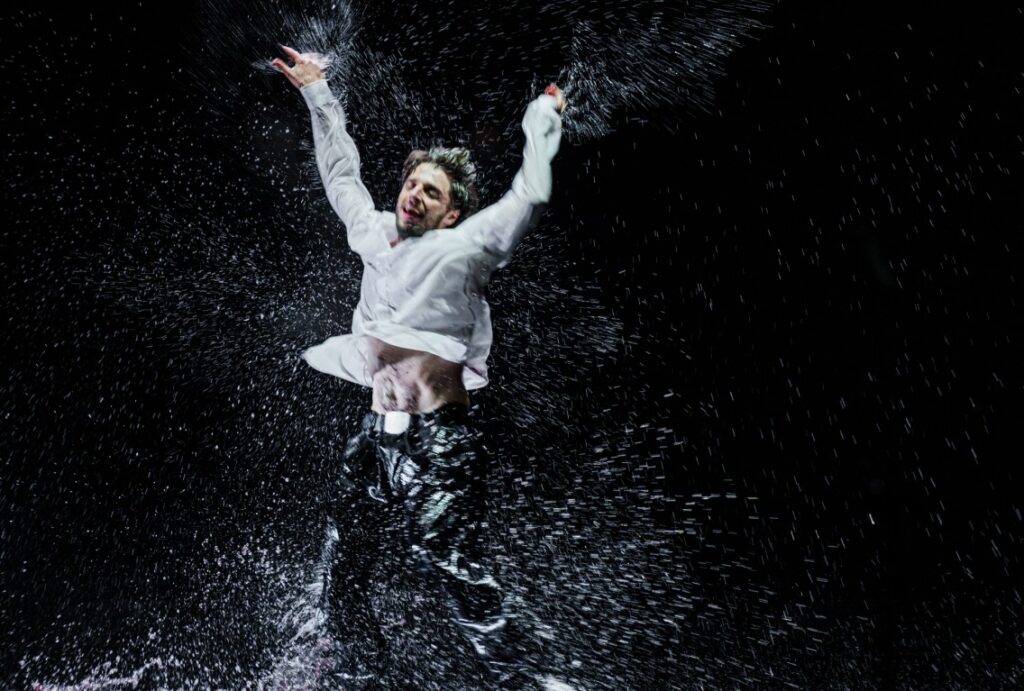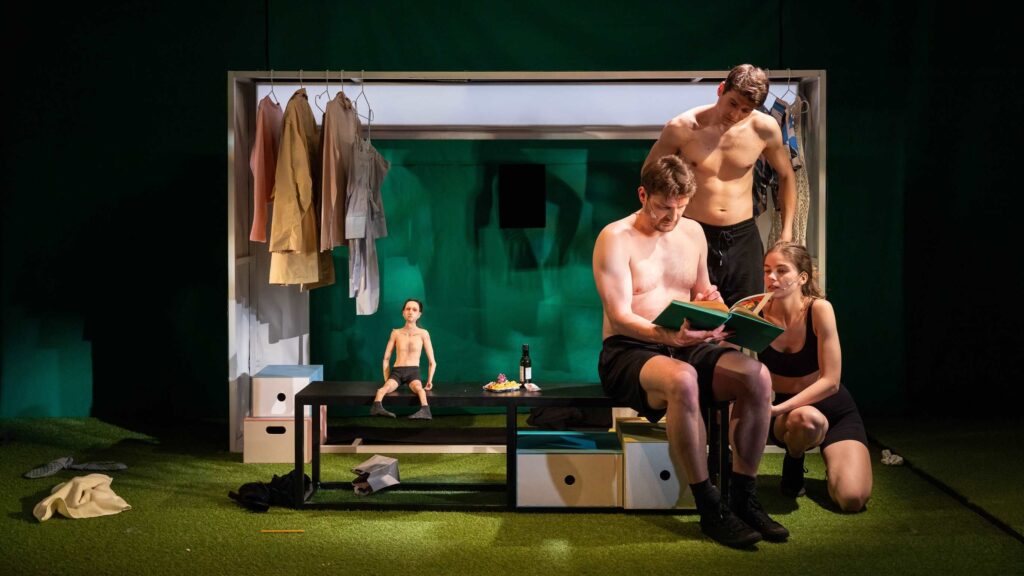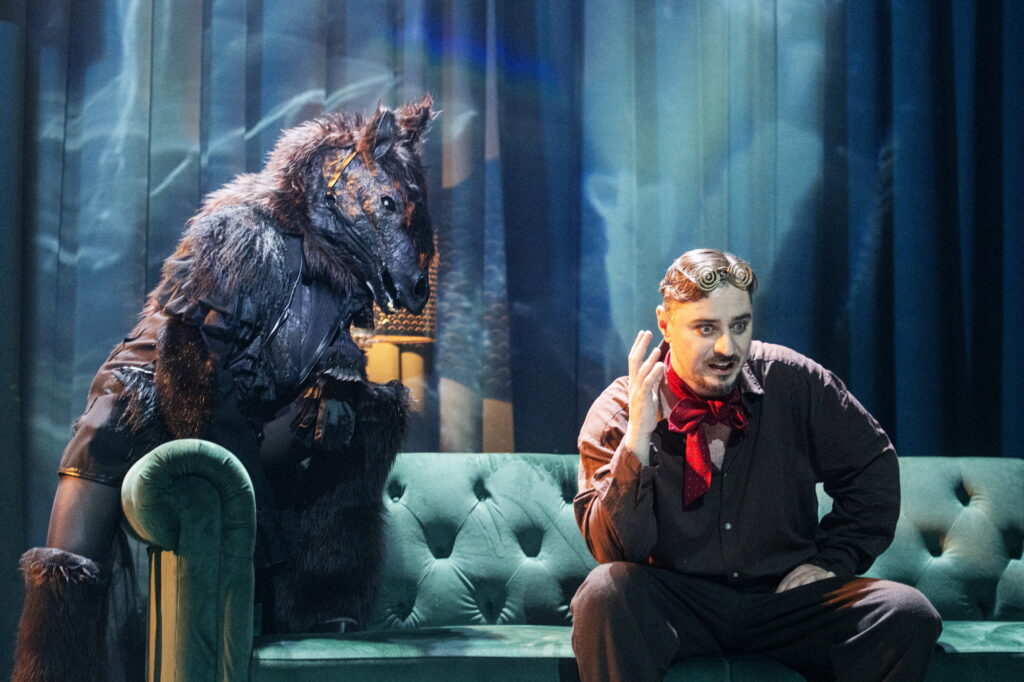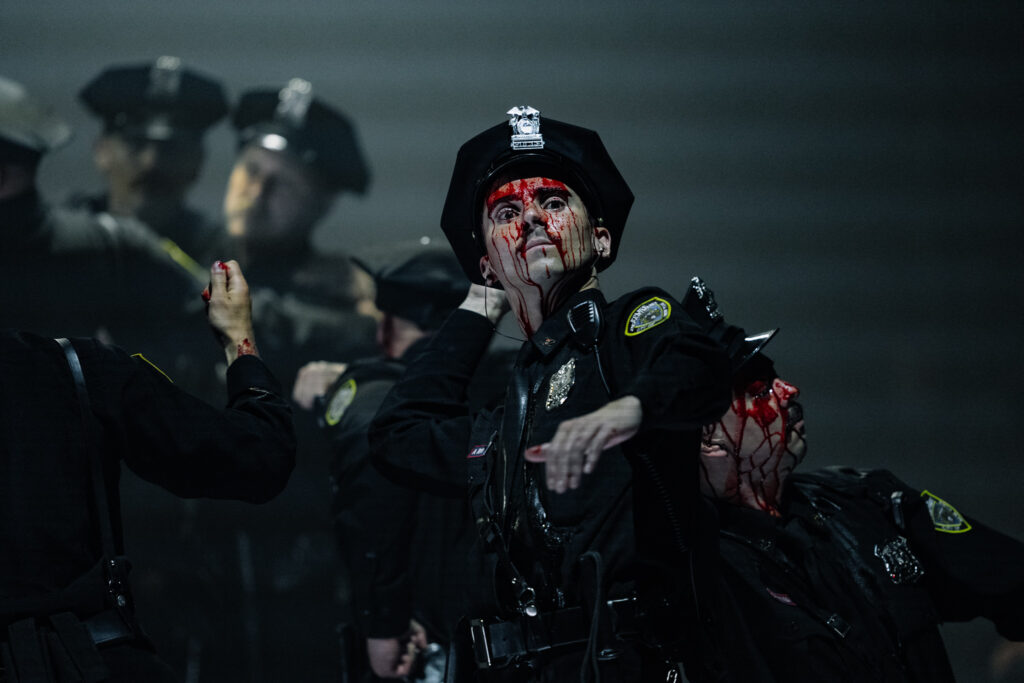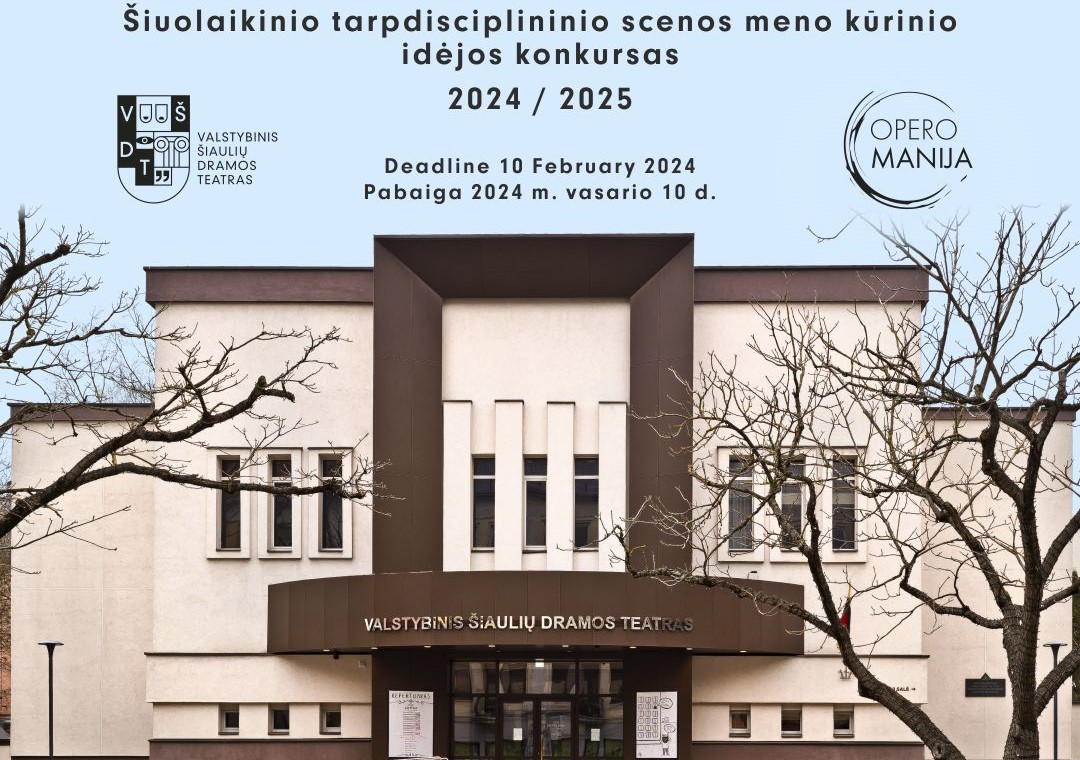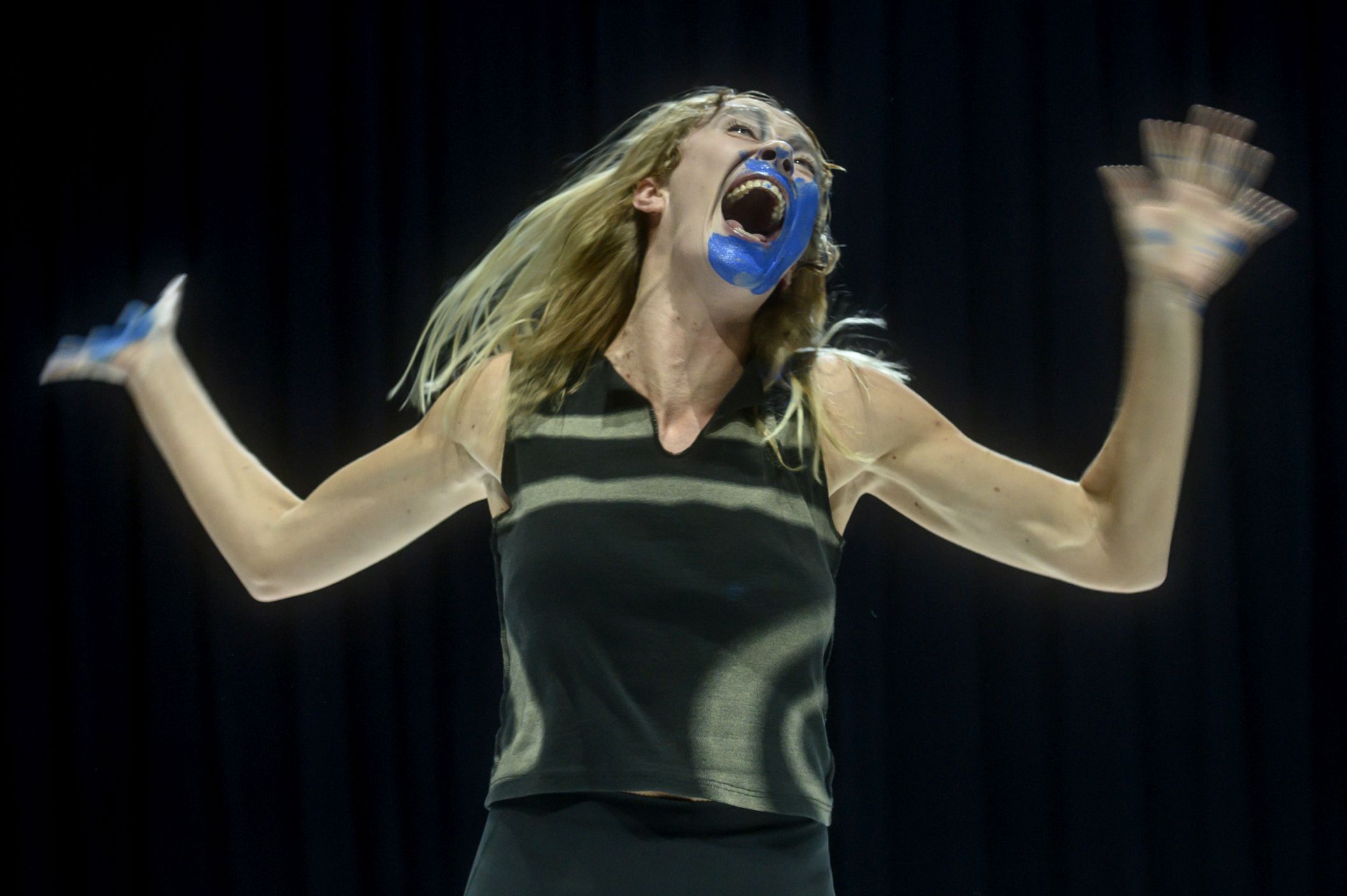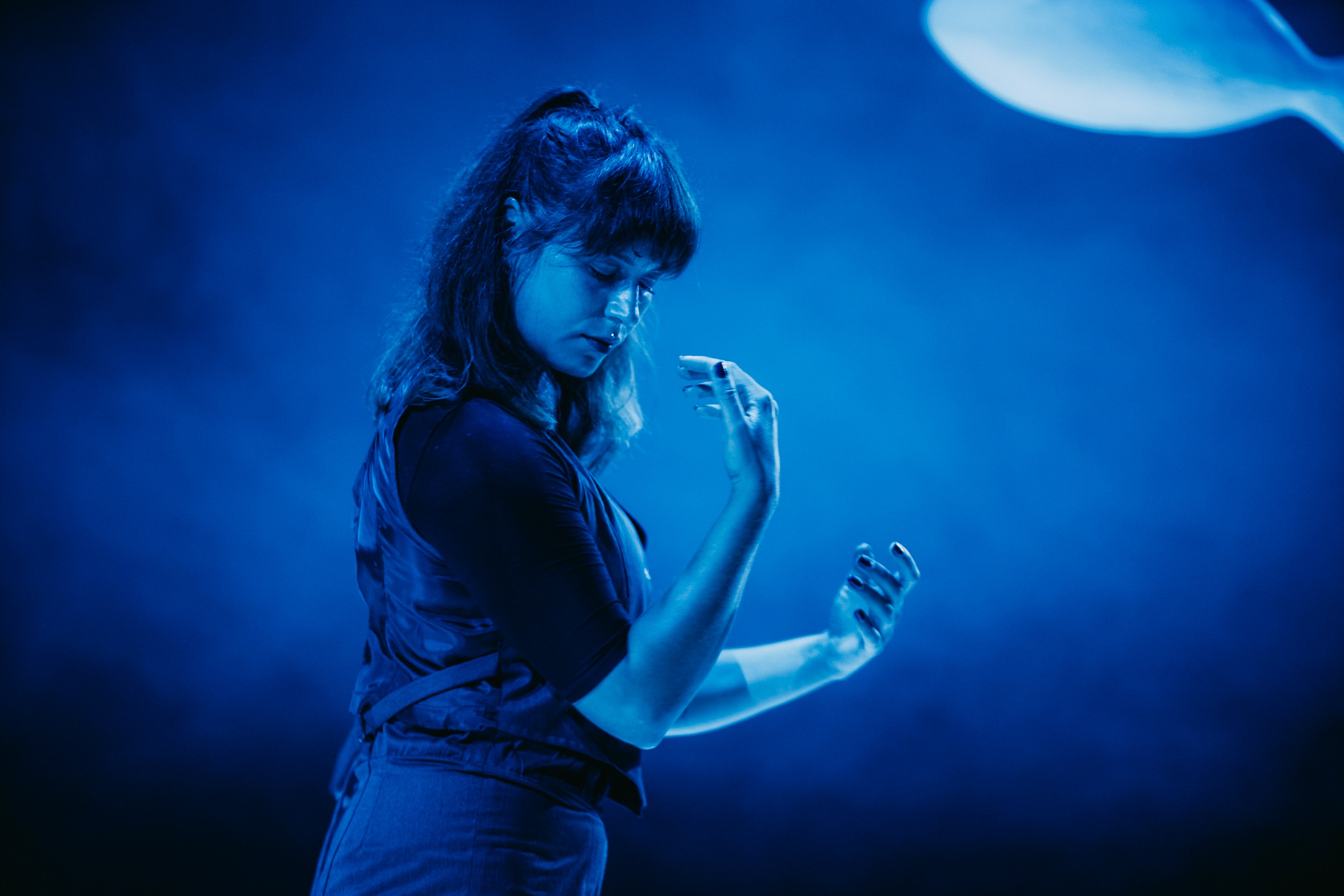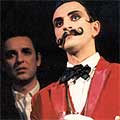
 |
| "Romeo and Juliet" by Oskaras Koršunovas |
“Revolutions eat their parents,” as one of the characters says in Peepshow by George Tabori. Indeed, for a long time we had thought that the real father of the national liberation movement and the singing revolution of Lithuania - theatre - would reach even greater heights and would tell us everything that had been forbidden to say; however, events on the streets and squares simply erased it from the minds of people.
In 1988-1989 the words of actors echoed in empty halls like a theatrical auto-da-fe, when the audience changed virtual stage for a real one, where patriotic phrases and slogans sounded more convincing than the words of an actor. State theatres could have closed for five and more years until they found new theatre language for a different audience and a new way to pronounce different phrases.
I remember one evening in 1988, in the Lėlė (Eng. Puppet) theatre, where we had a possibility to witness a new and uncommon for those days event – an action. Four guys, who called themselves the Green Leaf Group, were spraying aerosols for more than an hour. This action reminded of l’art pour l’art times but the message, which was presented later in the written form, was an attempt to prove that we were worried about ecology, when in reality we had never thought about it. That action was neither a show nor a spectacle. Moreover, it didn’t cause any “nerve attack,” because it turned out that the hall was too spacious for aerosols to fill. Representation had been replaced by philosophy that neither the audience nor the artists who mastered its expressions could comprehend fully.
Later, I met those artists in various and numerous performances at the Contemporary Art Centre. At that time, performances and happenings were extremely fashionable. Only after some time did the members of the Green Leaf: Aidas Bareikis, Žilvinas Kempinas and Julius Ludavičius became set designers for the first performances of a young director Oskaras Koršunovas. One of the members, the composer Gintaras Sodeika composed music for those performances. Also, Gintaras Sodeika became one of the founders of Oskaras Koršunovas Theatre and after that, the chairman of the Lithuanian Composers Union. Today, Žilvinas Kempinas and Aidas Bareikis live and work as artists in New York; whereas Gintaras Sodeika later became the vice minister of culture. Romantics have broken into the ranks of bureaucratic elite.
 |
| "The Seasons" by Eimuntas Nekrošius |
Back in 1988-1992 everything seemed so romantic. In Klaipėda, the port of Lithuania, where people could enjoy freer winds, the first private theatre was opened. The founders of the theatre intended to combine both business (a restaurant) and art (theatre in the basement). Nevertheless, during the first year of inflation as well as rapid business (goods used to be bought and sold three times per night) nobody was prepared for long-term investment. As the result, the new quality theatre that had staged some of the best performances based on the plays of absurdists (e.g. The Emigrants by Slawomir Mrozek, The End Of The Game by Samuel Beckett) had to be closed down and its director returned to the state theatre.
A new art centre called Art Aside (Menas į šoną) was opened in Kaunas, in 1993. The opening ceremony of the centre lasted for a week and presented the symbiosis of various kinds of art - happenings, music events, paintings, performances (once again: Beckett, Peter Handke). The state did not apprehend the importance of support of culture – not to mention the alternative culture; therefore, after some years the actors had to return to the state theatre.
It is important to mention that this was not censorship implemented with the help of economic means. In Lithuania, theatre has not experienced censorship since 1982-1983. The creators of visual and metaphoric theatre, the initiators of theatrical language reform in 70’s and 80’s Jonas Vaitkus and Eimuntas Nekrošius, had already staged performances the majority of which had been quite the opposite to the Communist regime (Le Roi Ubu, 1977 by Vaitkus, The Square, 1980 by Nekrošius). Metaphors used to be the weapon of vast power – they used to expand the stage space and the audience used to have that feeling as if it had participated in a protest meeting or kicked the system.
During the times of renaissance, the new rebels against the old state structures simply overestimated their opportunities under the state of siege - in those years of political upsurge everything was changing extremely rapidly. Correspondingly, artists hoped the culture structures would alter as well. Unfortunately, fifteen years past, we still cannot be proud of that. Nevertheless, without romanticism those culture structures would not have changed the way they have changed.
 |
| "Cold Child" by Oskaras Koršunovas |
Revolutionist by nature, protagonist of expressionist acting on stage Jonas Vaitkus decided to train the course of theatre directors in Lithuanian Academy of Music – earlier their studied in Moscow or St.Petersburg. For fun it is possible to trace the exact date of newcommers: on March 22, 1991, eleven days after the declaration of the independence of Lithuania, there was a premiere of There To Be Here by a young director Oskaras Koršunovas, the disciple of Vaitkus. The performance was based on miniatures by a Russian absurdist of the 20’s Daniil Charms. The stage was full of op-art scenery, “chaplin” or silent movie characters, philosophy based on the merge of reality and irreality; whereas the hall was crammed with young people. During the same year, Eimuntas Nekrošius made a fire for his own ideals and metaphors: The Nose by Nikolaj Gogol revealed a carnival of values, former poetry was replaced with rough and painful irony and instead of a character ‘Nose,’ there was a phallus wandering around and unleashing revolution. There was no space left for quiet talking and poetry - instability, demolition of authorities, revaluation of art, transformation of sincerity into painful auto-irony became the most distinct theatrical expressions of that time. A typical Fools night. New characters appeared side by side with the old ones from absurd plays (those were especially numerous on our stage in 1990-1995). However, other directors cherished the past of a romantic Lithuania. Although old topics prevailed, new plots and new dramas appeared. The play P.S. File OK by the poet and essayist Sigitas Parulskis was like a blow out of the blue for old pan-patriots: it mocked the idolatry of national symbols and its plot was a parable of the Christian legend turned upside down: Isaac killed his father Abraham for his living in half-truth. For the adherents of old truths this was a real hit below the belt. The same motif of patricide appeared in Hamlet by Nekrošius: the ghost of the father is guilty for the tragedy (Koršunovas has also used this “guilty parents” and patricide motif in his performances – from Roberto Zucco by Coltes till Fireface (Germ. Feuergesicht) by Mayenburg and even in last year’s Romeo and Juliet). After some protests appealing to “morality and national clearness” it was absolutely necessary to accept the new reality of theatre. International importance of the new theatre reality was proved by abundant awards, Taormina award for the New European Theatre Reality to Nekrošius (1994) and to Koršunovas (2002) among them.
 |
| "Three Sisters" by Eimuntas Nekrošius |
The aesthetics of the stage language and the way of speaking became inseparable from developing structures. In 1998, Oskaras Koršunovas established his theatre; during the same year, Eimuntas Nekrošius founded his studio Meno fortas (Eng. The Fort of Art). The first publications of the magazine Teatras (Eng. Theatre) appeared in 1997. A little earlier, in 1995, dance critics opened Lithuanian Dance Information Centre. In 1996, The Theatre and Cinema Information and Education Centre was founded. Having started from sometimes modest and sometimes extraordinary as well as rare presentations of foreign artists, such as Pina Bausch, Corrine Saporta, Mats Ek, the Dance Centre now is the organizer of The New Baltic Dance Festival, which is one of the best festivals in Eastern Europe as well as the Baltic region. Annually, the festival presents dance troupes from the East and the West and stimulates the creativity of our dancers. During the years 2002-2004, this festival was one of the festivals on the list of the Ministry of Culture that received substantial financial support. This is a clear illustration of the recognition of this sphere of art.
Encouraged by ongoing changes of the year 2000 Anželika Cholina established her own theatre. Her dance theatre has combined successfully the naiveté of comprehension of modern dance with commercial style. Nevertheless, in addition to some two or three more interesting modern dance troupes, the rest of them barely make both ends meet in financial as well as aesthetical senses.
 |
| "El Publico" by Gintaras Varnas |
The Theatre and Cinema Information Centre has had the ambition to change the repertoires of Lithuanian theatres. It has actually succeeded in that. After annual readings of new foreign plays or sketches (New Drama Action) it is possible to trace new names in theatres posters – e.g. Mark Ravenhill, Sarah Kane, Marina Carr, Jean-Luc Lagarce, Ronald Schimmelpfennig etc. The years 2002-2003 can be treated as the period of brutalization and britanization of theatres. Gintaras Varnas – now one of the leading names in Lithuanian theatre, began from political theatre of grand-guignol style, then plunged into the world of beauty, the realm of Spanish surrealism (Federico Garcia-Lorca) and baroque (Pedro Calderon de la Barca), recently, he has taken up the subject of liberation of women (Heda Gabler, Mourning Becomes Electra, Portia Coghlen) and, finally, at the end of romanticism has reached the end of utopia (Merlin, or The Wasted Land by Tankred Dorst).
Language conveys realities in a very sensitive way. New words have appeared in the vocabulary of cultural employees: contract system, mechanisms of compensation, social protection, status of an artist are used in various laws. The young, free radicals have started using such words as production/products, NGO activities, project, co-production and even such terms as venues, production houses, mapping. If international tours and co-productions or projects are reality (THEOREM, SEAS, Festival d’Avignon, Edinburgh Festival), local productions and projects have gained a romantic shade of impossibility - sad, but the most outstanding performances are most often shown abroad.
 |
| "Merlin, or Wasted Land" by Gintaras Varnas |
For the last five years Lithuanian landscape has been mostly comprised of independent troupes that have been ignored by monstrous state theatres and cultural politics. So far, there has been no venue or production house intended for independent theatre in Lithuania. It is useless to talk about alternative events – they are too rare, too scattered and born only for one-evening jam-session of a festival or a single project. Perhaps due to the fear of stepping on the insecure road of an artist, almost no new creators of the new theatre have emerged during the last fifteen years. Not a single new creator has broken into the wide waters in geographical sense or by means of his distinctive stage language. Only last year, in September, a new festival called Sirens was organized in Vilnius since the biannual international festival LIFE (1993-2000). Sirens is the festival, which has built the bridge to the new reality of European theatre. The organizers do hope that the echo of the messages of the festival will be irresistible and that it will not turn into the sirens of an ambulance for our theatre.

